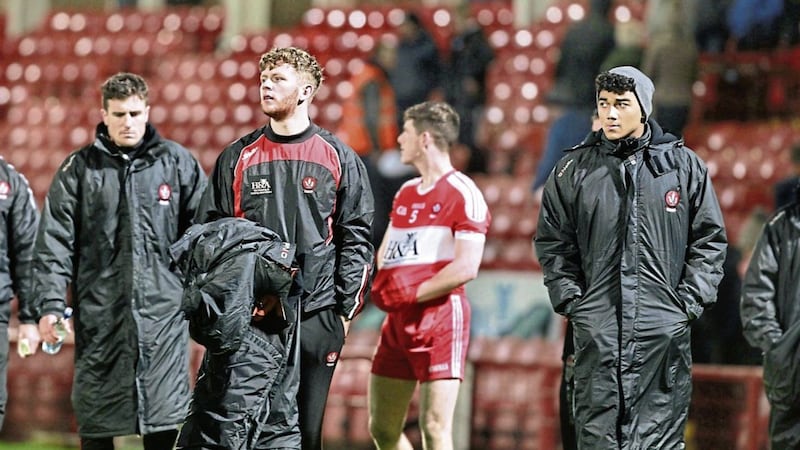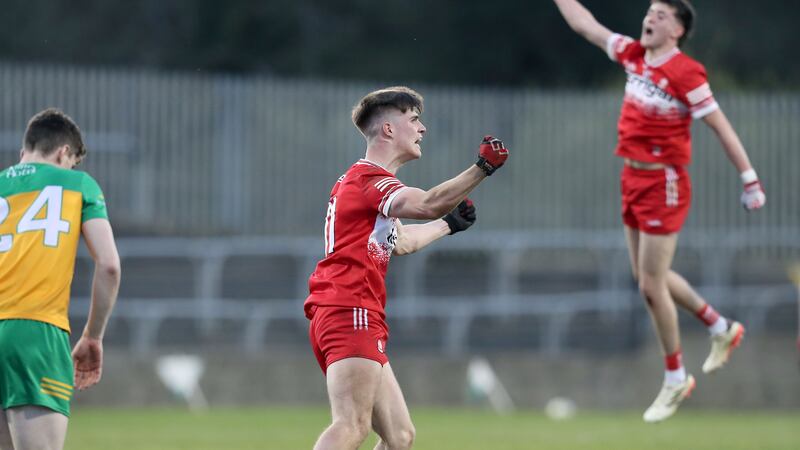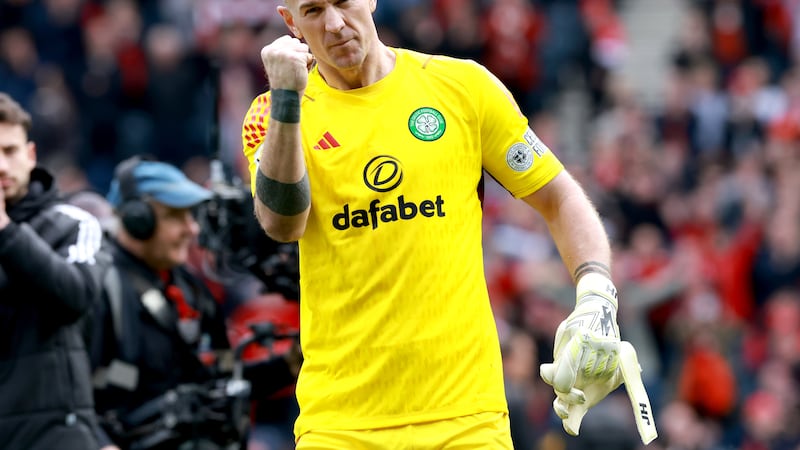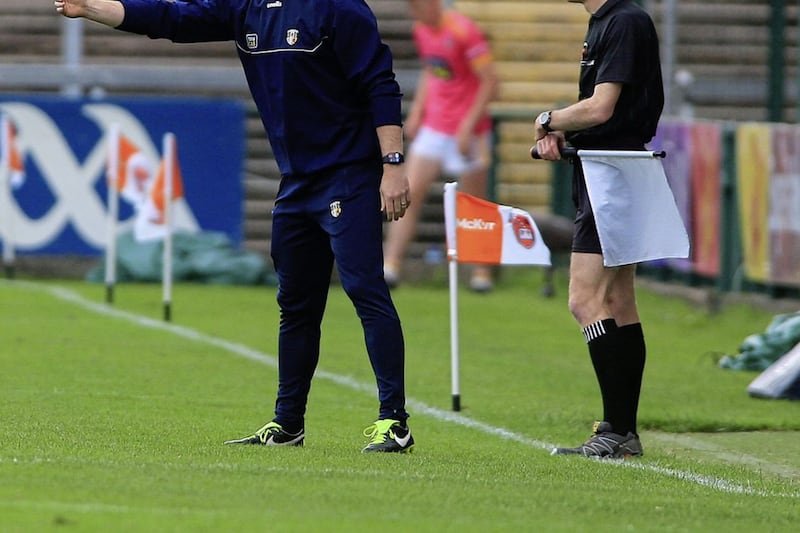I WROTE a number of weeks ago about my fear that the moves towards replicating the inter-county change of minor football to U17 was ill-conceived and that flaws are already becoming more apparent. While I don’t usually revisit things, the issues are easily of sufficient seriousness to merit it.
At inter-county level last week, we discovered that Derry’s Callum Brown, despite being overage for the county minors, cannot participate with the seniors.
This is the first time in the Association this has been the case, but this in itself isn’t a major issue as Brown will still have a decent U20 format to participate in at county level.
Indeed, it is for players like Brown, that the change to U20 and from U18 to U17 at county level makes sense in counteracting the risk of burnout.
If the county minors were still operational this year then he would have been eligible for county minors, county U20s, club minors, U21s and seniors as well as schools activity.
With the changes he’ll lose the county minor involvement and the loss of one high-demand team makes a big difference to a young player. As an elite-level footballer, playing on four different teams over the course of a year is essentially what you’re used to growing up so what’s left is entirely doable. This is a positive and logical change.
Callum Brown and his ilk in other counties, ie our top players, are exceptional cases and of all the U18 players in Derry he would represent less than one per cent.
Even a very good club minor, players who would make the county minor team in their final year, would usually have county minor, club minor, U20/21 and schools with a fringe involvement with club seniors. Given that school football ends by February for the majority of teams this again is not a particularly onerous level of competition.
This group will now do without county minors which is overall a good move and I think allows them a nice balance of activity – being strong on their club minor team and challenged by their first involvement with the club senior team.
Again this group of players is a minority and represent only about two-to15 per cent of players at club level.
The big decision for counties is whether to move club minor competitions to U17, in keeping with the changes at county level. At present, this is at the discretion of the respective competition control committees within each county. In Tyrone, like Derry and Donegal, the plan is to remain at U18, though within these counties there are those still pushing for U17 in the future. Many counties, however, including from what I can gather Monaghan and Cavan, are making the move to U17.
I have to plead a degree of ignorance regarding the motivations for this as, despite sitting on a medical, scientific and welfare committee in Croke Park involved with the burnout issue, managing my own club minor side and wrestling with the idea in my head, I just cannot see the logic.
Some put forward the argument of avoiding a clash with Leaving Cert/A-level commitments, but all players must learn to juggle the competing time demands of external work/studies and GAA commitments. It is very much part of our amateur way of life. It’s no bad thing.
Absolutely, it’s tough but in terms of teaching you the discipline to get things done and be on top of things it works a treat. In any case regarding studying, it is well established that exercise during such periods is beneficial from both a health and stress point of view as well as actually helping the studying.
The biggest, most obvious issue is what happens the club-level players who are overage for the club U17 team.
If they play schools football, that finishes in February and, with no county involvement, they only have club U21s and senior teams open to them.
Unfortunately, in the majority of counties, club U21 competitions are a joke with many clubs not even entering.
This is because all of their 19-, 20- and 21-year-olds who are still actively playing football will already be out with the senior or reserve teams making the U21 level an auxiliary and unnecessary competition. Having spoken about the elite players earlier we must also consider the ‘average’ player, the remaining 90 per cent.
That extra year between 17 and 18 makes a very significant difference to young men physically and, given the surge in level of strength and conditioning, made by senior players over the past five years it leaves the gap even greater for the average 18-year-old to senior level. Only those who are either at a high level or die hard about their football will head out with the seniors.
The rest is where my concern lies. Dropout is a big problem in the GAA. This happens most often between minor and senior and the move to U17 would surely exacerbate this.
Given the opportunities and other activities open to young people as they hit this key milestone this is natural and not surprising.
While we will never close this door completely, our task at the very least must be to keep them around and if possible bridge that gap to the senior team – not give them a push out the door.








